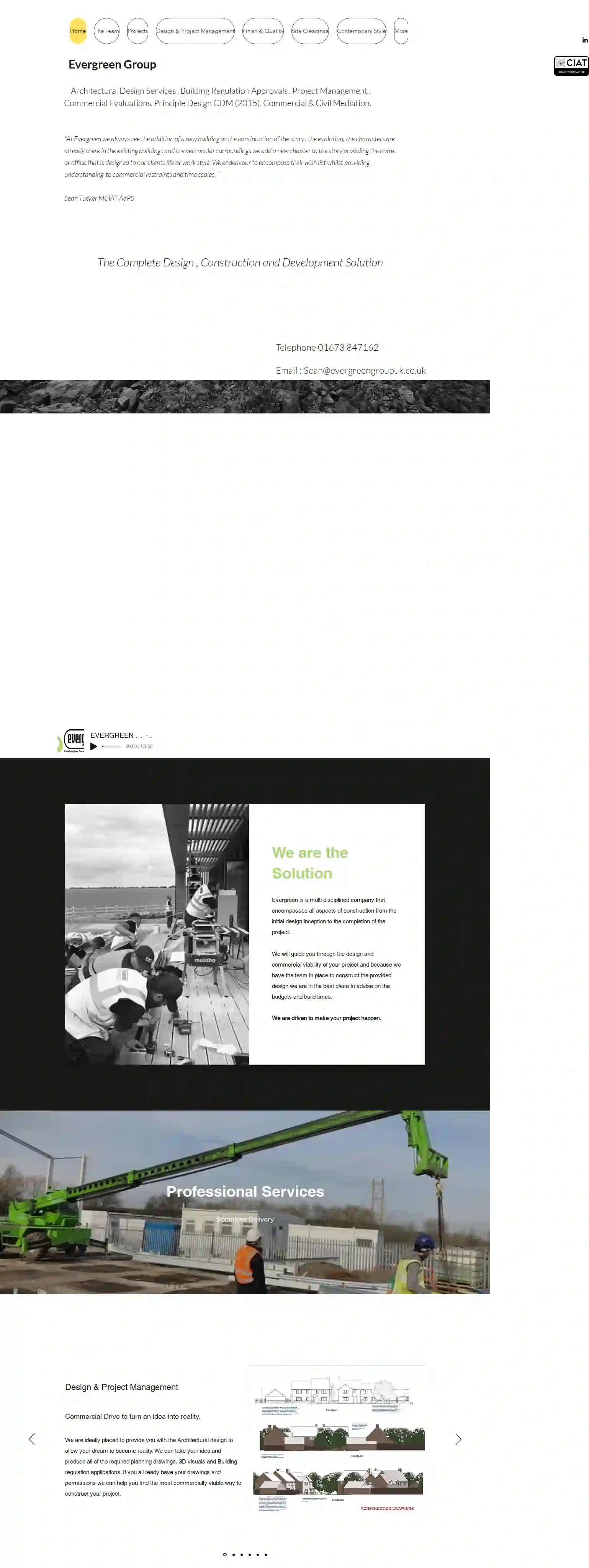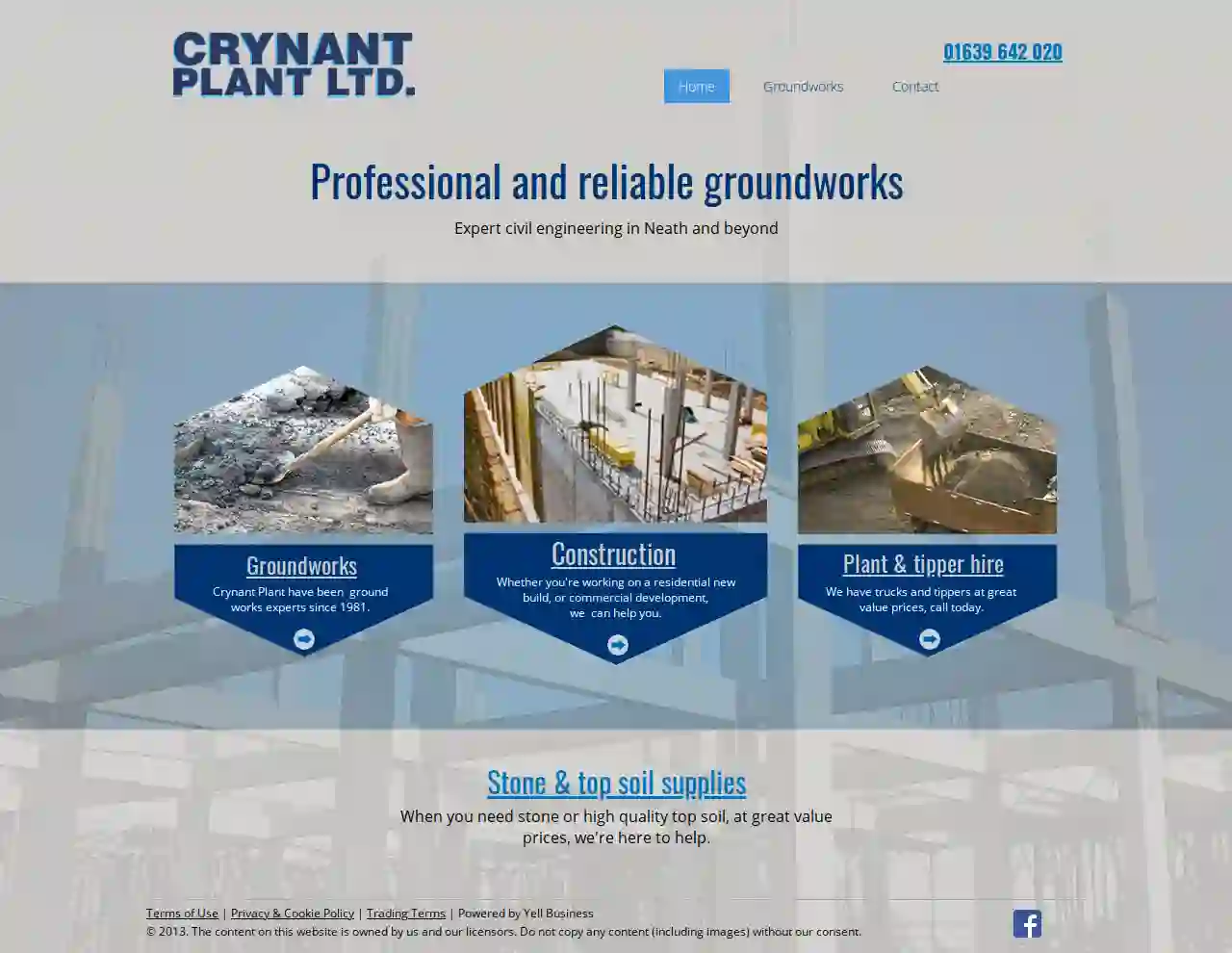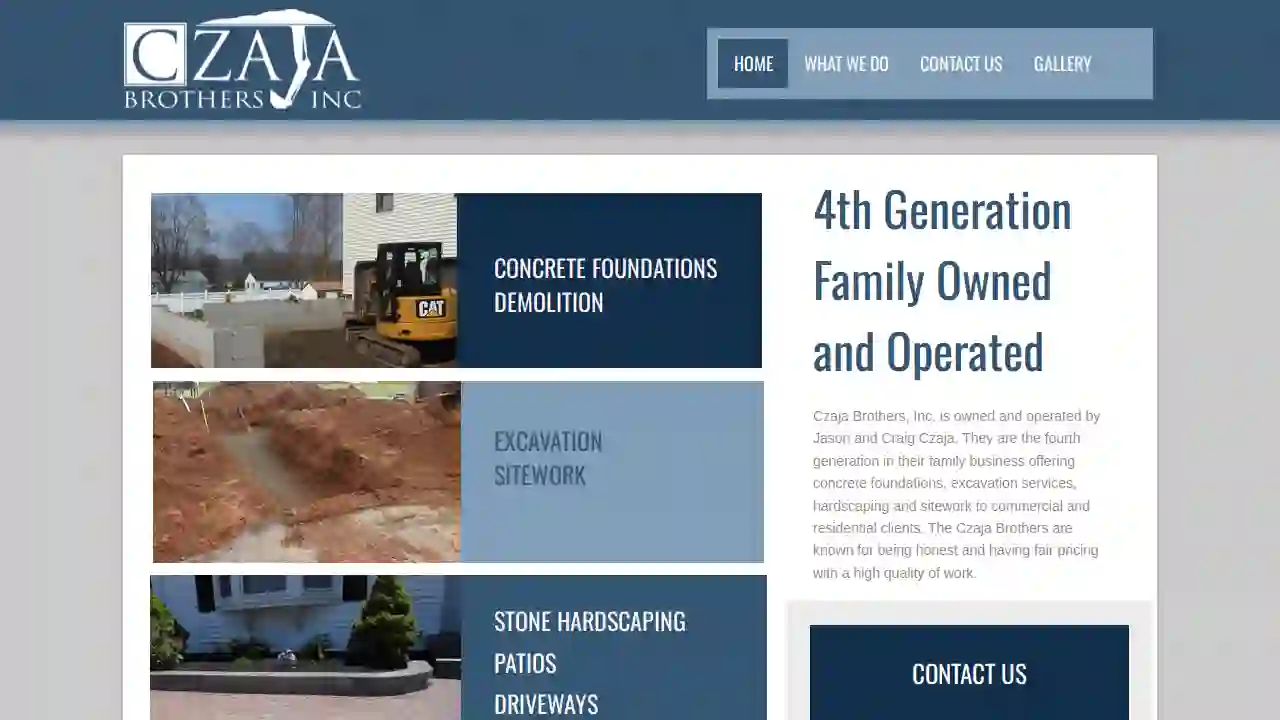Demolition Contractors North Hykeham
Top 10 Demolition Company Near Me in North Hykeham
Get up to 3 Demolition Contractor quotes for your project today! Compare profiles, reviews, accreditations, portfolio, etc... and choose the best deal.

Evergreen Construction (Market Rasen) Limited
The Workshop, Friesthorpe Road, Buslingthorpe, LN3 5AQ, GBEvergreen Group: Your Complete Construction Solution Evergreen is a multi-disciplinary company that encompasses all aspects of construction, from the initial design inception to the completion of the project. We guide you through the design and commercial viability of your project, and because we have the team in place to construct the provided design, we are in the best place to advise on budgets and build times. We are driven to make your project happen. We are ideally placed to provide you with the Architectural design to allow your dream to become reality. We can take your idea and produce all of the required planning drawings, 3D visuals, and Building regulation applications. If you already have your drawings and permissions, we can help you find the most commercially viable way to construct your project. At Evergreen, we always see the addition of a new building as the continuation of the story, the evolution. The characters are already there in the existing buildings and the vernacular surroundings. We add a new chapter to the story, providing the home or office that is designed to our clients' life or work style. We endeavor to encompass their wish list while providing understanding to commercial restraints and time scales.
- Services
- Why Us?
- Our Team
- Gallery
Get Quote
Derrick Services (UK) Ltd
4.54 reviewsFalcongate House, Faraday Road, Falcongate House Faraday Road Harfreys Industrial Estate, Great Yarmouth Norfolk, Great Yarmouth, NR31 0NF, GBThe Industry’s Leading Drilling Structure Specialist Derrick Services (UK) Limited – DSL – supports the Upstream Sector of the Industry, Worldwide, for all services associated with offshore and onshore drilling structures. Including, but not limited to, design & manufacture, construction, upgrade, repair, re-certification, inspection, assembly and modification. All of which is delivered from in-house resources. The success of DSL is based on a strong work ethic and our priority to retain and build on our relationships with our customers through Engineering Integrity, Quality of Product & Service, Supply of Positive and Productive Offshore/Site Personnel, Safety of Our Operations, Speed of Response and Flexibility. In support of this philosophy we have a strong and experienced management team with a wealth of knowledge and experience that goes back over 30 years.
- Services
- Why Us?
- Gallery
Get Quote
McCourt Construction Co
4.49 reviews60 K Street, Boston, 02127, GBBuilding America Since 1893 McCourt Construction is among America’s premier general contractors. Based in Boston for over 130 years, McCourt is an experienced, comprehensive contractor focused on heavy civil construction projects. The company’s portfolio includes a variety of public, private, and institutional projects ranging in value from tens of thousands of dollars to $300 million. New England’s Premier Heavy Civil Contractor Since 1893 McCourt Construction is honored to have contributed to numerous historic and prestigious college projects in Boston, MA. Whether constructing new academic buildings or renovating existing facilities, McCourt Construction is a reliable and efficient partner dedicated to delivering high-quality results that enhance learning environments for future generations.
- Services
- Why Us?
- Gallery
Get Quote
Next Level Environmental
51 reviews45 Dan Road, Canton, 02021, GBNext Level Environmental, LLC Next Level Environmental, LLC is a professional services firm located in Canton, Massachusetts. Founded in 2018, Next Level is built on the professional and technical expertise accumulated over a combined 20+ years by its founders. Field services offered include specializing in inspecting, maintaining, and rehabilitating buried infrastructure. Typical types of clients include public and private utilities such as department of public works or sewer commissions and construction companies specializing in utility and site work construction. Having deep experience in the environmental industry, Next Level has a significant advantage by providing an integrated approach for managing the challenges utilities face when it comes to their aging infrastructure. We specialize in inspecting, maintaining, and rehabilitating buried infrastructure. Our typical types of clients include public and private utilities such as department of public works or sewer commissions and construction companies specializing in utility and site work construction. Having deep experience in the environmental industry, Next Level has a significant advantage by providing an integrated approach for managing the challenges utilities face when it comes to their aging infrastructure.
- Services
- Why Us?
- Gallery
Get Quote
Crynant Plant Ltd
Bourne, GBCrynant Plant: Your Trusted Partner for Groundworks, Construction, and More Crynant Plant has been a leading provider of groundworks and civil engineering services in Neath and surrounding areas since 1981. We're a family-run business with a strong commitment to quality, reliability, and customer satisfaction. Whether you're a homeowner embarking on a new build or a commercial developer undertaking a large-scale project, we have the expertise and resources to deliver exceptional results. Our team of skilled professionals is dedicated to providing a comprehensive range of services, including: • Groundworks • Construction • Plant & Tipper Hire • Demolition Services • Stone & Top Soil Supplies • Heavy Haulage • Skip Hire We pride ourselves on our commitment to safety, efficiency, and environmental responsibility. We utilize modern equipment and techniques to ensure projects are completed on time and within budget. Our dedication to customer service means we're always available to answer your questions and address your concerns. Contact us today to discuss your project needs and discover how Crynant Plant can help you achieve your goals.
- Services
- Why Us?
- Accreditations
- Gallery
Get Quote
Gold Standard Excavation, LLC
52 reviewsStoughton, 02072, GBAbout Us Gold Standard Excavation, LLC is a premier excavation contractor serving the vibrant community of Stoughton, MA, and beyond. We are committed to providing high-quality excavation services with care, precision, and excellence. Our team of qualified experts utilizes top-of-the-line equipment to ensure that every job is completed promptly, accurately, and within budget. Whether you need septic excavation, site preparation, or any other excavation service, you can always rely on us for precise work and dedicated customer service. Top Services We turn soil into solutions, laying the foundation for your success. Our excavation contractor services offer top-tier expertise in land grading, lot clearing, and excavation. With state-of-the-art equipment and a team of skilled professionals, we ensure timely project completion, budget adherence, and unparalleled customer satisfaction. From initial groundwork to final touches, trust us to excavate your vision into reality. Why Choose Us Gold Standard Excavation, LLC boasts years of experience orchestrating large-scale projects. We take pride in delivering high-quality results, utilizing top-of-the-line equipment, and maintaining pristine, safe work environments at all times. Schedule us today for swimming pool excavation, tree removal, and excavating services of any kind.
- Services
- Why Us?
- Gallery
Get Quote
CZAJA Brothers
51 reviews117 Boston Road, Middletown, 06457, GBCzaja Brothers, Inc. is a family-owned and operated business with a rich history spanning four generations. We specialize in providing high-quality excavation services, concrete foundations, hardscaping, and sitework to both commercial and residential clients throughout Connecticut. Our commitment to honesty, fair pricing, and exceptional workmanship has earned us a reputation for reliability and customer satisfaction. When you choose Czaja Brothers, you can be confident that Jason or Craig Czaja will personally oversee your project from start to finish, ensuring your vision is brought to life with precision and care. Explore our photo gallery to see examples of our past projects and experience the quality that sets us apart.
- Services
- Why Us?
- Our Team
- Gallery
Get Quote
C. Pereira Excavation & Hardscape
513 reviewsBoston, GBAbout us Meet William Pereira, the visionary founder of CPereira Excavation & Hardscape!💡🌿🏗️💎Born and raised in Brazil, William brings his expertise in outdoor design and construction to Holbrook, MA. With a deep commitment to serving our community, we specialize in top-quality excavation and hardscape solutions. At CPereira Excavation & Hardscape, we transform outdoor spaces with precision and creativity. From excavation projects to stunning hardscape installations, our skilled team delivers exceptional craftsmanship every step of the way. Ready to elevate your outdoor living? Contact us today and experience the difference William Pereira and our team can make. Let’s bring your vision to life and create remarkable outdoor spaces that you’ll love.
- Services
- Why Us?
- Our Team
- Testimonials
- Gallery
Get Quote
Element Knotweed South Wales - Japanese Knotweed treatment and removal
524 reviewsBourne, GBJapanese Knotweed Treatment and Removal Specialists Comprehensive japanese knotweed treatment and removal services, Extending across South Wales and beyond Your Trusted and Experienced Specialists in Invasive Weed Removal Element Knotweed are specialists in providing comprehensive control services for treatment and removal of Japanese knotweed, and other invasive non natives species, catering to a wide range of clients: Our expert team provides tailored solutions for homeowners, home buyers & sellers, developers, construction companies, commercial businesses, local authorities, and private landowners. Whether it's residential or commercial properties, we are equipped to effectively manage and eradicate Japanese knotweed throughout the UK. Based in Swansea, South Wales. Call now
- Services
- Why Us?
- Gallery
Get Quote
ASP Excavation Ltd
51 reviewsBoston, GBWelcome to Asp Excavation Services Asp Excavation Services is a company specializing in a wide range of services, including: Extension footings Drainage (blocked & renewal) Garden clearances Tree work & stump removal All aspects of landscaping With over 20 years of experience, we are fully insured and certified and based in Warrington. We are committed to ensuring our customers are happy with the completion of all work undertaken by our company. We pride ourselves on providing a pleasant and enjoyable experience for our customers, making the process as stress-free as possible. Contact us today for a free, no-obligation quote.
- Services
- Why Us?
Get Quote
Over 13,059+ Excavation Contractors registered
Our excavation providers operate in North Hykeham & surroundings!
ExcavationHQ has curated and vetted Top Excavation Companies near North Hykeham. Find a reliable contractor today.
Frequently Asked Questions About Demolition Contractors
- Size and Complexity of the Structure: Larger and more complex structures, such as multi-story buildings, require more time, labor, and specialized equipment, increasing costs.
- Type of Demolition: Different demolition methods, such as implosion, wrecking ball, or high-reach demolition, have varying costs.
- Material Disposal: Disposal fees for demolition debris can contribute significantly to the overall cost, depending on the type and quantity of materials.
- Location and Accessibility: Demolition in densely populated areas or with limited access may require more planning and specialized equipment, affecting costs.
- Hazardous Materials: The presence of asbestos, lead paint, or other hazardous materials requires specialized removal and disposal procedures, adding to the expenses.
- Permits and Regulations: Obtain all necessary demolition permits and comply with local building codes and environmental regulations.
- Contracts: Have a clear and comprehensive contract with the demolition contractor outlining the scope of work, payment terms, and liabilities.
- Environmental Laws: Comply with environmental laws regarding hazardous material removal, waste disposal, and pollution control.
- Neighboring Property Rights: Respect neighboring property rights and take measures to prevent damage or disruption to adjacent properties.
- Worker Safety: Adhere to worker safety regulations and provide a safe working environment for demolition crews.
- Clear the Site: Remove all furniture, appliances, personal belongings, and any valuable items from the structure.
- Secure the Perimeter: Fence off the demolition area to prevent unauthorized access and protect surrounding property.
- Disconnect Utilities: Arrange for the disconnection of electricity, gas, water, and other utilities servicing the building.
- Hazardous Material Abatement: If asbestos, lead paint, or other hazardous materials are present, have them professionally removed before demolition begins.
- Notify Neighbors: Inform your neighbors about the demolition schedule to minimize disruptions and address any concerns.
- Obtain Permits: Ensure all necessary demolition permits are in place before starting work.
- Experience: Look for companies with a proven track record and years of experience in the demolition industry.
- Licensing and Insurance: Ensure the contractor is properly licensed to operate in your area and carries adequate insurance to protect you from liability.
- Safety Record: Inquire about their safety protocols and accident history. A reputable contractor prioritizes safety.
- References and Reviews: Ask for references from past clients and check online reviews to gauge their reputation and customer satisfaction.
- Professionalism: Choose a company that communicates clearly, provides detailed estimates, and has a courteous and responsive team.
How much does demolition cost in the UK?
What are the legal considerations for demolition projects?
How do I prepare my property for demolition?
How do I find a reputable demolition contractor?
How much does demolition cost in the UK?
- Size and Complexity of the Structure: Larger and more complex structures, such as multi-story buildings, require more time, labor, and specialized equipment, increasing costs.
- Type of Demolition: Different demolition methods, such as implosion, wrecking ball, or high-reach demolition, have varying costs.
- Material Disposal: Disposal fees for demolition debris can contribute significantly to the overall cost, depending on the type and quantity of materials.
- Location and Accessibility: Demolition in densely populated areas or with limited access may require more planning and specialized equipment, affecting costs.
- Hazardous Materials: The presence of asbestos, lead paint, or other hazardous materials requires specialized removal and disposal procedures, adding to the expenses.
What are the legal considerations for demolition projects?
- Permits and Regulations: Obtain all necessary demolition permits and comply with local building codes and environmental regulations.
- Contracts: Have a clear and comprehensive contract with the demolition contractor outlining the scope of work, payment terms, and liabilities.
- Environmental Laws: Comply with environmental laws regarding hazardous material removal, waste disposal, and pollution control.
- Neighboring Property Rights: Respect neighboring property rights and take measures to prevent damage or disruption to adjacent properties.
- Worker Safety: Adhere to worker safety regulations and provide a safe working environment for demolition crews.
How do I prepare my property for demolition?
- Clear the Site: Remove all furniture, appliances, personal belongings, and any valuable items from the structure.
- Secure the Perimeter: Fence off the demolition area to prevent unauthorized access and protect surrounding property.
- Disconnect Utilities: Arrange for the disconnection of electricity, gas, water, and other utilities servicing the building.
- Hazardous Material Abatement: If asbestos, lead paint, or other hazardous materials are present, have them professionally removed before demolition begins.
- Notify Neighbors: Inform your neighbors about the demolition schedule to minimize disruptions and address any concerns.
- Obtain Permits: Ensure all necessary demolition permits are in place before starting work.
How do I find a reputable demolition contractor?
- Experience: Look for companies with a proven track record and years of experience in the demolition industry.
- Licensing and Insurance: Ensure the contractor is properly licensed to operate in your area and carries adequate insurance to protect you from liability.
- Safety Record: Inquire about their safety protocols and accident history. A reputable contractor prioritizes safety.
- References and Reviews: Ask for references from past clients and check online reviews to gauge their reputation and customer satisfaction.
- Professionalism: Choose a company that communicates clearly, provides detailed estimates, and has a courteous and responsive team.